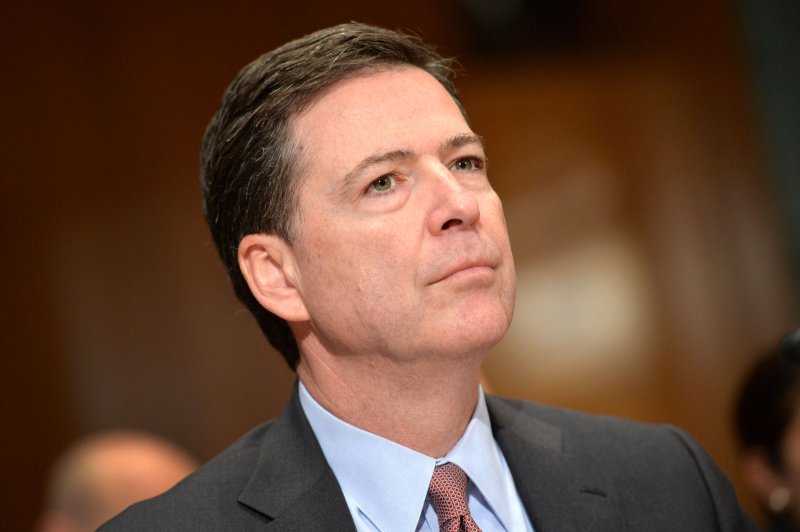WASHINGTON, Nov. 7 (UPI) -- The director of the FBI defended an agent who posed as an Associated Press reporter to help deceive a teen suspected of making bomb threats to his high school in Washington state in 2007.
Director James Comey, writing to the New York Times, called such deceptions "proper and appropriate under Justice Department and FBI guidelines at the time" and "a critical tool in fighting crime.
Comey's letter was in direct response to a Times editorial that slammed the agency for misappropriating the reputation of the AP and the Seattle Times that undermined 'the most fundamental component of a free press -- its independence," as well as deceiving the public in other sting operations.
The 2007 incident, uncovered last month by the Electronic Freedom Foundation, involved FBI agents posing as journalists to lure out a 15-year-old suspect. The FBI agent posed as a reporter covering the bomb threats, "relying on an agency behavioral assessment that the anonymous suspect was a narcissist," Comey said.
The agent sent a link to a fake "draft" of his story -- ostensibly to allow the suspect to see he was being fairly portrayed -- to the suspect's MySpace page. That link, which sent the suspect to a page resembling the design of the Seattle Times' website, included malware that allowed the FBI to track the suspect's location and make an arrest soon after.
"No actual story was published, and no one except the suspect interacted with the undercover 'AP' employee or saw the fake draft story," Comey wrote. "Only the suspect was fooled, and it led to his arrest and the end of a frightening period for a high school."
The AP blasted the FBI's actions accusing the agency of "unacceptable tactics [that] undermine AP and the vital distinction between the government and the press."
And in an editorial, the Seattle Times editorial board said the FBI "obliterated a line that should have never been crossed."
"The laudable end... does not justify the government's outrageous disregard of the role of the press in a free society," they wrote.
Comey acknowledged such tactics would likely require approval from higher up today than in 2007, but that it would still be lawful and appropriate.
"Every undercover operation involves 'deception," which has long been a critical tool in fighting crime," he said. "The FBI's use of such techniques is subject to close oversight, both internally and by the courts that review our work."















